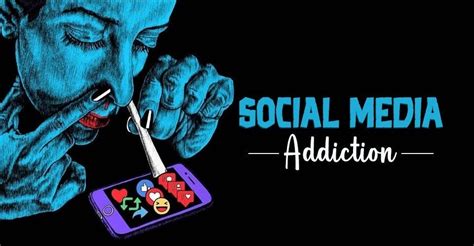In the ever-evolving digital age, the way we connect and communicate has undergone a dramatic transformation. With the rise of virtual networks and interactive platforms, individuals are now able to engage with others on an unprecedented scale. These online communities, which serve as virtual extensions of our social interactions, have the potential to profoundly impact our emotional well-being. Research suggests that the utilization of such digital spaces can shape our emotions, attitudes, and behaviors, ultimately influencing how we perceive ourselves and others.
Rich with diverse perspectives and experiences, online communities provide individuals with a platform for self-expression and connection. Through shared interests and common values, individuals can find solace, understanding, and support. These digital spaces, often free from the constraints of time and geography, create opportunities for individuals to forge meaningful relationships, fostering a sense of belongingness and community. Furthermore, the ability to curate our online presence allows us to showcase our strengths and interests while seeking validation and acceptance.
However, the impact of such virtual communities on mental well-being is a double-edged sword. While they offer a plethora of benefits, they also pose several risks. As individuals become increasingly reliant on virtual networks for social interaction, their exposure to various stressors and triggers amplifies. Constant exposure to carefully curated highlight reels and unrealistic societal expectations perpetuated online can lead to feelings of inadequacy, low self-esteem, and increased anxiety. Additionally, the anonymity provided by these digital platforms can give rise to cyberbullying, trolling, and the spread of harmful content.
As we navigate the intricate web of online communities, it is crucial to be aware of the potential effect they can have on our mental well-being. By recognizing the power these virtual platforms hold, individuals can adopt strategies to safeguard their emotional health. This includes cultivating a healthy online presence, seeking out supportive and inclusive communities, and critically evaluating the content we encounter. By promoting empathy, tolerance, and positive engagement within these digital spaces, we can harness the benefits while mitigating the potential risks, ensuring a healthier digital experience.
The Hidden Perils of Addiction to Online Networks

In the digital era, the excessive attachment to virtual platforms has given rise to a distinct dilemma in modern society. Drawing individuals into an addictive web, these platforms have fostered an environment where insidious dangers may lurk beneath the surface. While the allure of online networks may initially seem innocuous, this article aims to shed light on the concealed hazards that accompany addiction to these virtual realms. By delving into the darker side of social media dependence, we can better comprehend the adverse effects it can have on one's well-being.
The Rise of Online Networking and Its Influence on Psychological Well-being
An upsurge in the prevalence of online networking platforms has swept across society, transforming the method by which individuals interact and communicate. This widespread adaptation to virtual networks has not only shaped social relationships but also engendered a significant impact on individuals' psychological well-being. By examining the repercussions of the digital era on mental health, this section delves into the multifaceted implications stemming from the rapid expansion of online networking.
- The Emergence of Cyber Connectivity:
- Virtual Communities and Identity Formation:
- Self-Comparison and Perceived Self-Worth:
- Cyberbullying and Online Harassment:
- Information Overload and Mental Exhaustion:
The advent of cyberspace has given rise to a plethora of digital platforms that facilitate connections between people worldwide. This proliferation evokes both positive and negative psychological ramifications, affecting diverse aspects of human behavior and emotional well-being. Understanding the implications of this newfound cyber connectivity becomes vital in comprehending its subsequent influence on mental health.
Virtual communities have become virtual microcosms that furnish individuals with opportunities to construct their identities in ways unimaginable before. These digital social settings enable individuals to accomplish self-expression, self-discovery, and peer acceptance, all within the realm of online networks. Nonetheless, this novel form of identity formation can manifest both constructive and detrimental effects on mental well-being and needs to be scrutinized further.
The nature of online networking platforms often leads to inadvertent self-comparison among users. People tend to present curated versions of their lives, accentuating accomplishments, and concealing struggles. As a result, individuals may develop false perceptions of others' lives, leading to feelings of inferiority or inadequacy. The profound influence of such comparisons on individuals' perceived self-worth necessitates an exploration of their impact on mental health.
The rise of social media and other digital platforms has also given rise to online harassment and cyberbullying, introducing new challenges to mental well-being. The ease of anonymity and the vast reach of virtual communities have made it effortless for negative interactions to occur. Understanding the psychological consequences of cyberbullying is crucial in mitigating its detrimental effects on individuals' mental health.
The influx of information and constant engagement with online networks has led to a state of perpetual connectivity and information overload for many individuals. Such overwhelming exposure to vast amounts of content can trigger mental exhaustion and diminished psychological well-being. This section examines the impact of information overload on mental health and explores potential coping mechanisms.
Understanding the Addictive Nature of Online Networking and its Ramifications

Exploring the Alluring Pull of Digital Socialization and Unmasking the Unforeseen Consequences
The realm of virtual connectivity has captivated countless individuals, tempting them into a habitual cycle of constant online presence. Residing within this captivating digital realm, online networking platforms have gradually permeated society, silently establishing an addictive grip on many unsuspecting users. Examining the captivating allure and the repercussions of this addiction sheds light on the less explored aspects of social media and the implications it has on individuals' overall well-being.
Unveiling the Secret Lures
Engrossing interfaces, instant gratification, and the illusion of connection have become the bedrock upon which this addictive nature thrives. Social media, with its meticulously crafted algorithms and captivating designs, entices users to continuously engage, giving rise to an insatiable craving for validation and acceptance. The incessant scrolling, liking, and commenting feed into a cycle where self-worth becomes intrinsically linked to online engagement and social media popularity.
The Hidden Toll on Mental Health
However, beneath the glimmering facade, the addictive nature of social media has a profound impact on one's mental health well-being. Endless comparisons, the fear of missing out (FOMO), and the perennial pressure to maintain an idealized digital persona can trigger feelings of anxiety, loneliness, and inadequacy. The dopamine-driven pleasure loop reinforced by constant notifications and engagement further deepens this unhealthy relationship, often leading to a deterioration in overall mental well-being.
Redefining Digital Mindfulness
As society becomes increasingly intertwined with virtual connectivity, it becomes crucial to cultivate a sense of digital mindfulness. Recognizing the seductive nature of online networking and its potential consequences paves the way for curbing addictive habits. By establishing boundaries, engaging in meaningful offline connections, and consciously monitoring usage, individuals can regain control over their relationship with social media, ultimately safeguarding their mental well-being in the modern digital era.
Unmasking the Connection Between Social Media Comparison and Diminished Self-esteem
Within the realm of interconnected digital realms, the prevalent practice of comparing oneself to others through social media platforms has emerged as a formidable force impacting individuals' perception of self-worth. Unveiling the profound influence of this trend on one's self-esteem requires an in-depth exploration of the multiple layers entwined in the connection between social media comparison and diminished self-perception.
The journey towards understanding the intricate bond between social media comparison and low self-esteem begins by delving into the psychological implications of incessant digital comparisons. The advent of social media platforms has provided individuals with unprecedented access to carefully curated portions of others' lives, often exacerbating feelings of inadequacy and fostering unrealistic expectations. Frequent exposure to carefully constructed highlight reels can lead to self-comparisons, ultimately eroding one's sense of self-worth.
- Broader societal ideals and beauty standards perpetuated through social media channels also play a pivotal role in shaping low self-esteem. The constant bombardment of images promoting a particular body image or lifestyle can breed feelings of dissatisfaction and inadequacy within individuals who fail to conform to these standards.
- In addition, the elusive nature of online validation and the desire for approval from others often drive individuals to incessantly compare themselves to their peers. This constant pursuit of external validation can have profound effects on self-esteem and perpetuate a cycle of anxiety and low self-worth.
- The amplification of social comparison and its subsequent effects on self-esteem are further intensified by the phenomenon of selective self-presentation. Social media platforms provide individuals with the ability to carefully curate and present only the most positive aspects of their lives, creating an illusory perception of perfection. This deliberate cherry-picking of content further enhances feelings of inadequacy when comparing oneself to others.
Understanding the intricate mechanisms that underlie the link between social media comparison and low self-esteem is crucial in devising strategies to mitigate its detrimental impacts on mental well-being. By examining the various psychological factors at play, individuals can gain insight into cultivating a healthier relationship with social media, fostering self-acceptance, and embracing an authentic sense of self-worth.
FAQ
What is the impact of social media on mental health?
Social media can have both positive and negative impacts on mental health. On one hand, it provides a platform for connecting with others, sharing experiences, and finding support. However, excessive use of social media, cyberbullying, and the constant comparison with others can lead to feelings of anxiety, depression, and low self-esteem.
Can social media cause mental health problems?
While social media itself may not directly cause mental health problems, it can contribute to their development or exacerbate existing conditions. Research suggests that excessive social media use can lead to feelings of loneliness, isolation, and even addiction. It can also expose individuals to cyberbullying, harassment, and negative social comparisons, which can negatively impact mental well-being.
How does social media affect self-esteem?
Social media can significantly impact self-esteem. Many people tend to present an idealized version of their lives online, which can lead to social comparisons and feelings of inadequacy. Constant exposure to carefully curated posts and images of others' seemingly perfect lives can create unrealistic standards and make individuals question their own worth, resulting in lowered self-esteem.
What are some positive effects of social media on mental health?
Social media can have positive effects on mental health too. It provides a platform for individuals to seek and receive emotional support, connect with like-minded individuals, and access valuable mental health resources. Online communities and support groups can offer a sense of belonging and understanding, while educational content and therapy apps can help individuals learn coping strategies and manage their mental health effectively.
How can individuals protect their mental health while using social media?
There are several strategies individuals can employ to protect their mental health while using social media. They can limit their screen time and take regular breaks from social media to prevent overstimulation. It's important to curate their online feed by unfollowing accounts that trigger negative emotions or make comparisons difficult. Prioritizing real-life connections, setting boundaries, and seeking support when needed can also contribute to maintaining good mental well-being in the digital age.



